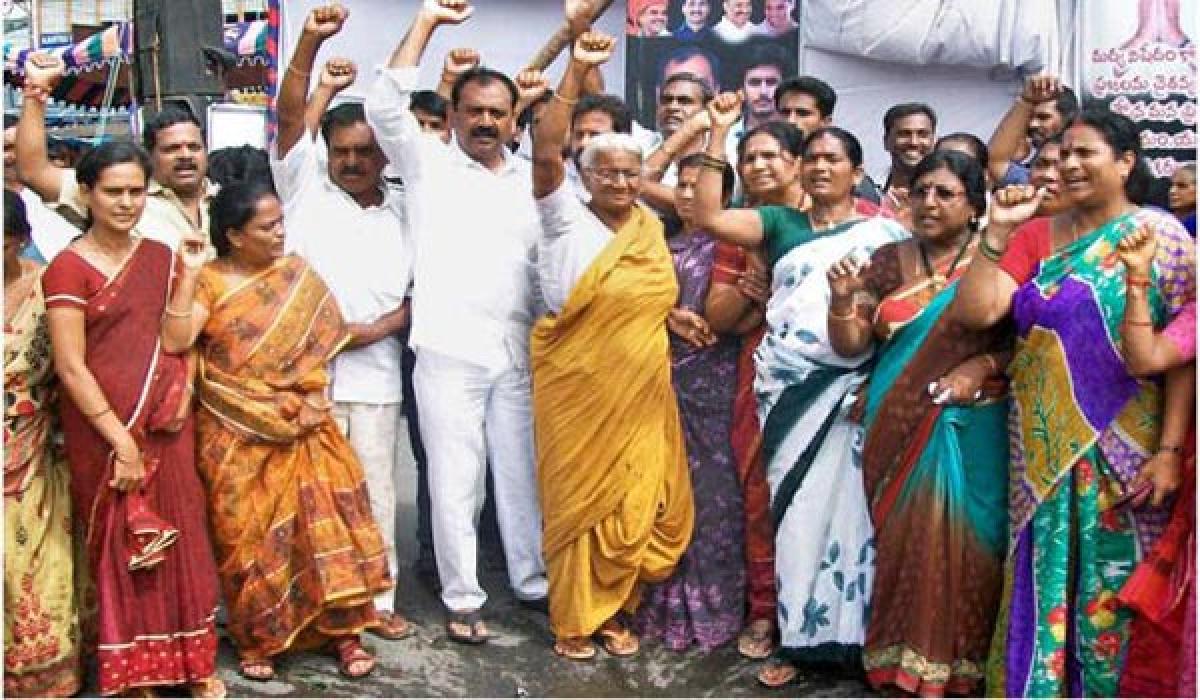Just In

Vijayawada:Dubagunta Rosamma, the woman who led the famous anti-liquor movement in united Andhra Pradesh in early 1990s, died on Sunday. She was 93. According to family members, she died of ill health in her village Dubagunta in Nellore district of Andhra Pradesh. Her real name was Vardhineni Rosamma but she became famous as Dubagunta Rosamma after the village became famous for the women\'s m
Vijayawada:Dubagunta Rosamma, the woman who led the famous anti-liquor movement in united Andhra Pradesh in early 1990s, died on Sunday. She was 93.
According to family members, she died of ill health in her village Dubagunta in Nellore district of Andhra Pradesh.
Her real name was Vardhineni Rosamma but she became famous as Dubagunta Rosamma after the village became famous for the women's movement against arrack, a low-cost local liquor that is generally consumed by poor people.
YSR Congress party chief and Leader of Opposition in the state assembly Y.S. Jaganmohan Reddy condoled the death of Rosamma.
Along with neo-literate women of the region Rosamma launched the fight after two adult literacy programme employees were abused by a couple of drunken villagers in 1992.
The women's movement highlighted their sufferings as the men were resorting to violence against women and spending a major part of their income on arrack.
Armed with broomsticks, chilli powder and sticks, the women attacked the arrack shop in the village and forced it to shut down.
Motivated by the Dubagunta example, women throughout Nellore district joined the anti-liquor movement. Soon it spread to other districts, forcing then Chief Minister K. Vijayabhaskara Reddy to ban arrack with effect from October 1, 1993.
However, as the sale of Indian-made foreign liquor (IMFL) continued, the women's organisations fought for a total prohibition. It became a major poll issue in 1994 elections with Telugu Desam Party (TDP) President N.T. Rama Rao promising total prohibition, if voted to power.
Soon after taking oath as the chief minister on January 16, 1995, Rama Rao imposed total prohibition.
However, Rama Rao's son-in-law N. Chandrababu Naid, who led a revolt few months later to become the chief minister, revoked prohibition citing loss of revenue for the state. The activists claimed that he bowed to pressure from the powerful liquor lobby.

© 2024 Hyderabad Media House Limited/The Hans India. All rights reserved. Powered by hocalwire.com







